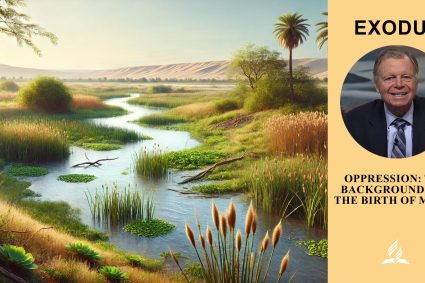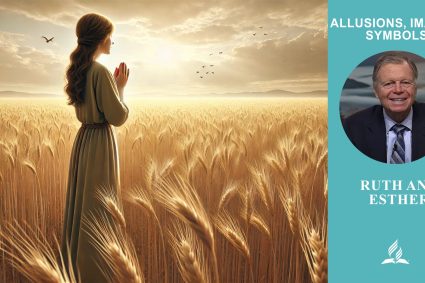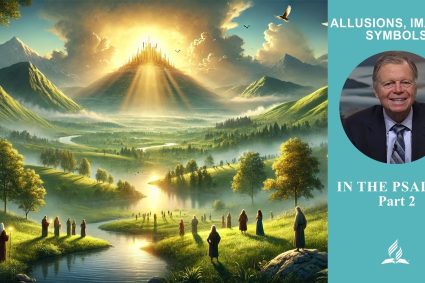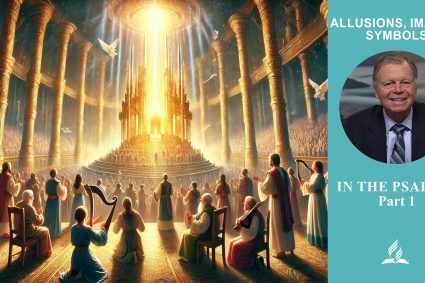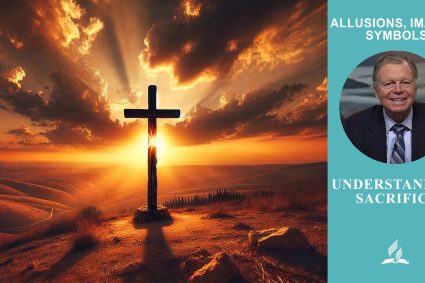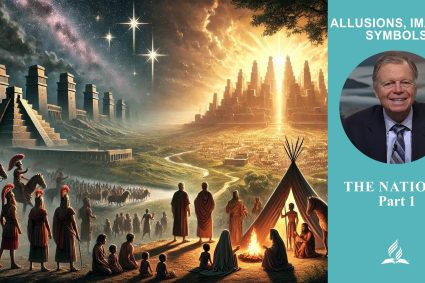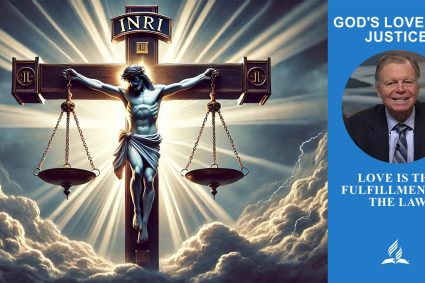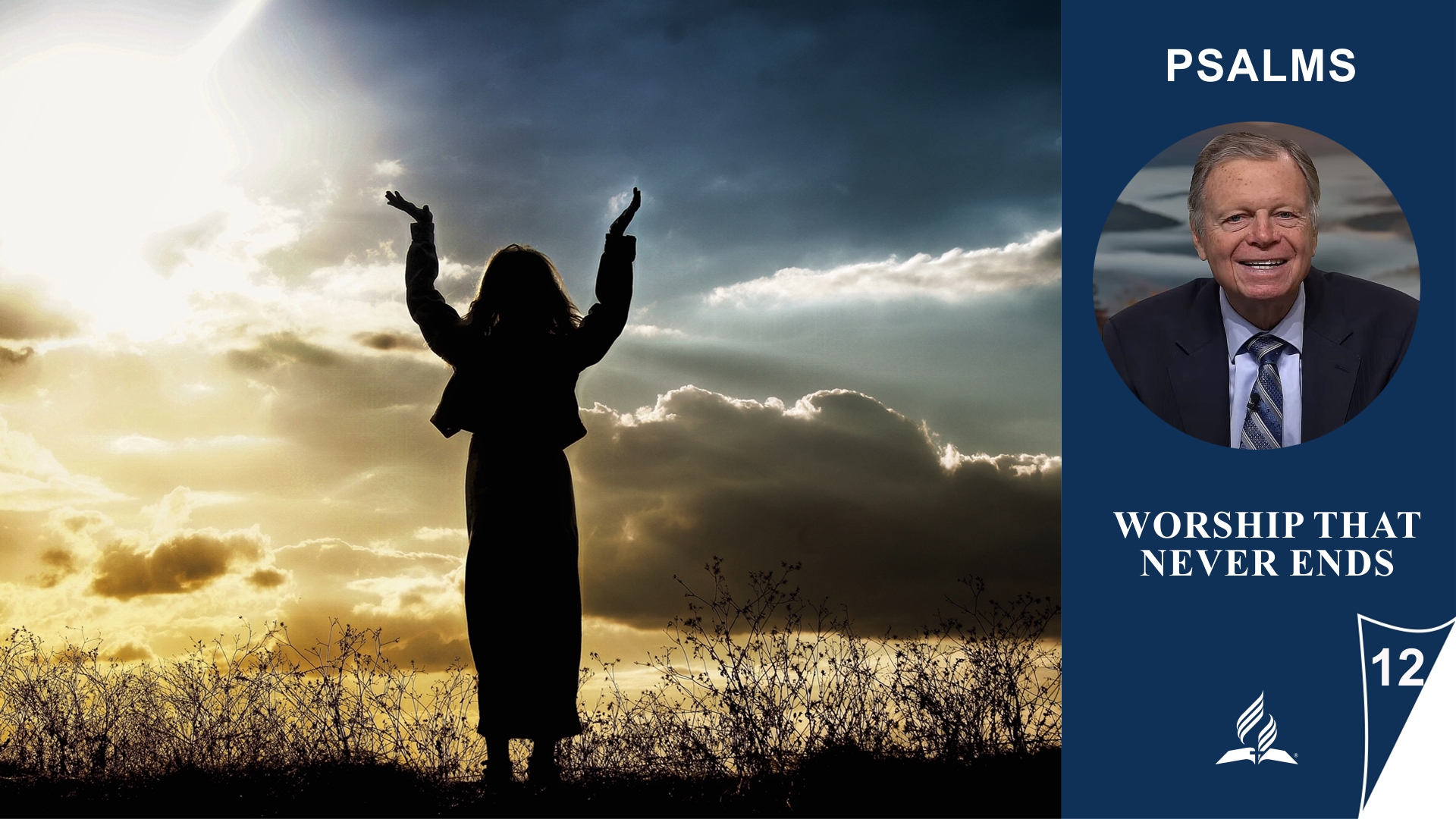
Series PSALMS with Pastor Mark Finley |
Lesson 12.Worship That Never Ends |
The Diversity and Depth of Worship: Lessons from the Psalms and the Bible
In this lesson, we will explore the fascinating diversity of worship depicted in the Psalms and other biblical texts. We will discover how various aspects of worship, from praise and blessing to the proclamation of the Gospel, are illuminated in the scriptures. Additionally, we will examine the significance of authenticity and spirituality in worship, as emphasized by the Psalmists and Jesus Christ himself. Let’s delve into the rich world of worship and be inspired by the timeless teachings of Holy Scripture!
Memory Text: Psalm 104:33 – “I will sing to the Lord as long as I live; I will sing praise to my God while I have my being.”
Content:
12.1 Lift Up Your Hands in the Sanctuary
Blessing in the Sanctuary: Worship and Service as a Holy Priesthood
Psalm 134 emphasizes blessing as a fundamental principle of the relationship between God and Israel, with the people blessing God in the sanctuary and God blessing His people from Zion. Worshipers are often depicted as servants of the Lord, standing in the sanctuary and offering praise. The sanctuary serves to reflect the glory of the Lord and provide worshipers with a secure framework to approach God. This is also reflected in New Testament scriptures, where God’s people are depicted as a holy priesthood offering spiritual sacrifices through Jesus Christ.
12.2 Sing to the Lord a New Song
The Freshness of Worship: The New Song as an Expression of a Living Relationship with God
Singing a “new song” in the Psalms symbolizes the renewed recognition of God’s sovereignty and gratitude for His care and salvation. It expresses joy over deliverance from enemies and death, as well as God’s special favor toward Israel. In Isaiah and Revelation, this “new song” is understood as an expression of unique redemption through the blood of the Lamb and hope for future revelations of God. It symbolizes a vibrant and dynamic relationship with God, which is constantly fresh and renewing.
12.3 Lord, Who May Abide in Your Tabernacle?
Holiness in Worship: The Conditions for Entering God’s Presence
Those worthy to worship in God’s presence, as described in Psalm 15, are those whose actions and character reflect God’s image and are therefore holy. Holiness is a fundamental requirement for access to God’s presence and must be accompanied by ethical behavior in all areas of life. A pure heart that is blameless before God and lives in the fear of the Lord is of utmost importance for the worshiper. Holiness means having a complete and undamaged heart that seeks God and is inspired and empowered by His grace.
12.4 Declare His Glory Among the Nations
The Diversity of Worship: Singing, Praise, and Evangelizing Among the Nations
Psalm 96 encompasses various aspects of worship, including singing, praise, bringing offerings, and proclaiming the Gospel among the nations. These expressions of worship are not separate but complement each other, giving substance to worship. Worship arises from the recognition of God’s nature as Creator, King, and Judge. It involves remembering God’s past deeds, celebrating His present wonders, and anticipating His future actions. Worship is characterized by boundless joy and confidence, as well as holy fear and reverence. The Psalm calls for worshiping the Creator and Judge, reflecting God’s end-time proclamation of the Gospel to the world.
12.5 Lift Up Your Hands in the Sanctuary
Hypocrisy in Worship: The Warning of the Psalms and the Teachings of Jesus
Psalms 40, 50, and 51 address the inadequacy of empty sacrifices and external worship when not accompanied by authentic inner spirituality. God does not reject sacrifices per se but the hypocrisy and wickedness of worshipers who offer external rituals without true repentance and sincerity. Jesus emphasizes in John 4:23–24 that true worship occurs in spirit and truth, not merely through external actions. These Psalms and Jesus’ teachings remind us that our hearts and motivations are just as important as external rituals in true worship.
12.6 Summary
The Essence of Worship: Diversity, Authenticity, and Spirituality
In Lesson 12, we explore the diversity of worship and the importance of authenticity and spirituality in worship. Psalms like Psalm 134 emphasize blessing as a fundamental principle of the relationship between God and His people, while others like Psalm 96 highlight the importance of proclaiming the Gospel among the nations. Additionally, the lesson emphasizes that true worship encompasses not only external rituals but also inner devotion and sincerity, as seen in Psalms like Psalm 15 and Psalm 40. The lesson concludes with a reference to Jesus’ teachings on the importance of worship in spirit and truth in John 4:23–24.
(Visited 14 times, 1 visits today)

